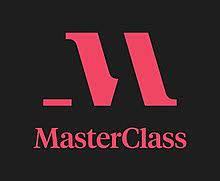The SMART goals framework is valuable for setting achievable and clearly defined goals.
Mainly used in leadership and corporate management, this framework is now also widely used in education to help students achieve academic as well as personal goals.
According to a recent study from Forbes, people who describe their goals in great detail are more likely to accomplish them than those who don’t successfully.
Though having a goal is important, they should be SMART enough to achieve it successfully.
So, to help you understand what SMART goals are and how you can set them for yourself, I have provided a list of some examples of smart goals. In the end, I have also provided some tips that can help in setting smart goals!
What Are Smart Goals?
Setting goals is the most effective practice for all students to improve their time management skills as well as to achieve milestones for their growth and development.
Tip: Before you learn new time management skills, ensure you go through the time management statistics to get your facts and figures checked!
Smart goals help the students achieve both long-term and short-term objectives and design a plan to achieve these goals.
Let us get a clear view of each acronym word to determine what the Smart Goals implies.
The acronym Smart Stands for Smart, Measurable, Achievable, Realistic, and Time-bound. Below is a clear understanding of each of them.
S- Specific: Specific goals indicate what you exactly want to achieve, and these goals are clearly identified. By making your goals specific, you can break the larger goals into smaller ones so they can be easily achieved.
M- Measurable: It means analyzing the ways or developing criteria to measure your progress towards the goals. It is beneficial to keep track of your progress.
A- Achievable: The goals you have planned should be challenging, but at the same time, they should be achievable. Your goal should stretch your potential, but it should not be too difficult, leading to discouragement.
R- Realistic: Together with achievable, your goal should be relevant and realistic. It may pertain to your grades, interests, hobbies, and career.
T- Time-bound: It is necessary to establish a timeframe for your goals. There should be a deadline to achieve your goal.
Now that we have seen the exact meaning of smart goals, let us have a look at some examples of smart goals for students.
Top 10+ Smart Goals Examples For Students
Here are 10 smart goals examples for students that may help you to set your own goals.
1. Enhancing Academic Performance
Specific: The goal is to secure a GPA of 4.0 for the upcoming semester.
Measurable: To take up monthly assessments to track academic progress. Student can also track their progress online through the portal provided by their school or on the report cards.
Achievable: The student secured a GPA of 3.8 in the previous semester. So, a GPA of 4.0 is easily achievable if there is consistency in the hard work.

Realistic: Enhancing your GPA is a relevant and realistic goal, as it will help students attain success for the future.
Time-bound: The goal is for the upcoming semester, so the time frame to achieve the goal is around four months.
2. Learning Extra Language
Specific: Learning the French language is the specific goal.
Measurable: The total time spent on the independent study can be measured and analyzed easily.
Achievable: Twenty-five minutes per day is achievable.

Realistic: In order to diversify the skills, learning additional language is a relevant and realistic goal.
[Bonus: if you wish to learn how to learn a new language, how about learning sign language with my guide on how long does it take to learn a sign language, which includes all the details?]
Time-bound: One lesson per day is easily trackable.
3. Being Organized
Specific: The specific goal is to get organized in terms of submitting the assignments in the specified time.
Measurable: Dedicating one hour per week is a clear commitment for time.
Achievable: One hour is an adequate amount of time. You can also purchase a simple planner to keep track of your work.
Realistic: This goal is absolutely relevant and will help to enhance the accountability of your school or college work and personal development.
Time-bound: This goal provides the chance for a weekly check-in.
4. Getting Proper Sleep
Specific: Taking a proper sleep of 8 hours is a specific goal.
Measurable: Alarms and reminders can be used to keep track of time.
Achievable: Organizing the activities of the students by eliminating distractions, especially mobile phones or other smart gadgets, can turn out to be beneficial in achieving this goal.
Realistic: Getting a proper 8-hour sleep is a must for the effective functioning of your brain and body. It also helps to improve your concentration.
Time-bound: Students should determine their daily schedule and adjust the time accordingly for additional sleep.
5. Reading One Book Every Month
Specific: The specific goal is to read one book every month.
Measurable: Students can track their progress by listing out the number of books they have already read.
Achievable: Most students can read one book per month easily, especially if the book is short.

Realistic: The goal is absolutely relevant and realistic as it will boost the reading skills of the students.
Time-bound: If students want to read one book every month, then there is a time frame of 12 months to attain the goal.
6. Balancing Emotions And Stress Through Meditation
Specific: Meditating every day in order to control stress and balance emotions is the specific goal.
Measurable: Students can use different apps to keep track of the meditation and maintain regular meditation practice.

Achievable: A minimum time of 10 minutes for meditation is easily available and achievable by the students.
Realistic: Controlling stress and emotions will help students to be more productive and happier.
Time-bound: Students can meditate at least for 10 minutes per day and try it for six months by keeping a record of their progress to see the effect.
7. Working Out
Specific: Working out daily to improve physical fitness is the specific goal.
Measurable: The improvement in the fitness level and the number of workouts per week can be tracked easily. There are several fitness apps available to track the progress.

Achievable: This goal is completely achievable If you prepare a particular routine and stick to it. You can see improvement in terms of both strength and stamina.
Realistic: Students want to improve their physical fitness.
Time-bound: The students can set a timeframe to accomplish the goal.
8. Improving Productivity
Specific: To improve productivity in terms of academics. It can be done by making use of the Pomodoro timer.
Measurable: Students can track their progress by maintaining a diary.
Achievable: Studying on a regular basis using this technique can turn out to be an add-on for the existing study program that will lead to enhanced productivity.
Realistic: Improved productivity in the study can help students learn easily and secure good grades.
Time-bound: The goal can be persisted with the habit for about three months.
9. Improving Diet
Specific: The specific goal is to improve the diet by eating healthy and avoiding unhealthy carbs.
Measurable: You can measure the goal by keeping track of your current weight to have a record of your weight, whether it is maintained after eliminating unhealthy food.

Achievable: The goal is achievable by planning a proper and maintaining a proper diet.
Realistic: Due to unhealthy eating habits, the health and lifestyle of the students are affected to a great extent. So maintaining a healthy lifestyle by having a properly balanced diet is a relevant goal.
Time-bound: You can weigh and see yourself every week to see whether you are proceeding in the right direction.
10. Apply For A Part-Time Job Or Internship
Specific: The goal is to get an internship or a part-time job by the end of the Summer.
Measurable: Students can keep an eye on their progress by maintaining a list of the internships and jobs they have applied to.
Achievable: The goal can be achieved if the students put in the complete effort to fill out the applications and appear for the interviews.

Realistic: The goal is completely relevant and realistic, as students may wish to earn some extra sum.
Time-bound: Students want an internship by the end of the Summer. That is why they have a particular timeline to fulfill their goal.
11. Type at 60 words per minute
Specific: My goal is to type on my laptop with increased speed.
Measurable: I will measure this by using the typing speed tests available online for free.
Achievable: I type at 45 words per minute. I can definitely achieve this goal.
Realistic: Typing quickly will increase my overall productivity as a student.
Time-bound: I want to achieve this goal within 2 months, and I will practice it daily.
12. Gain confidence in public speech
Specific: I want to focus on increasing confidence for speech competitions.
Measurable: I will make sure to give the speech without stumbling in front of my class.
Achievable: This is achievable psychologically and not cognitively.
Realistic: I need this confidence so that I can successfully stand out from others.
Time-bound: I want to work on my confidence level within 3 weeks from now.
13. Research five Potential Career Options
Specific: I will research career options for me. I will make it more specific after listing 5 different career options.
Measurable: The measurable outcome is I will make the ranking of career options in the end. I will research each career option separately.
Achievable: This goal is achievable because I have the necessary resources and skills to research career options. I have access to the internet, libraries, and other resources. I also have the skills to evaluate information and make decisions.
Realistic: This goal is realistic because it is something that I can accomplish within a reasonable amount of time. I will research five potential career options over the next two weeks.
Time-bound: I will complete the research of five potential career options within 1 month.
14. Apply for Summer Internships
Specific: I want to apply for internships. To be more specific, I will apply to the most suitable internships related to my career.
Measurable: I will measure my progress by tracking the number of internships I apply to and the number of interviews I receive.
Achievable: This goal is achievable because I have a strong academic record, relevant skills, and experience. I have also done my research and identified five internships that are a good fit for me.
Realistic: This goal is realistic because I am willing to put in the hard work and effort to apply for internships. I am also confident in my abilities and believe that I am a competitive candidate.
Time-bound: I will apply to all five internships by the end of the month.
15. Increase my Productivity
Specific: Increase my productivity by 10%.
Measurable: Track the amount of time I spend on each task and the number of tasks I complete each day. Compare my results over time to see if I am improving.
Achievable: A 10% increase in productivity is a realistic goal that I can achieve by making small changes to my work habits.
Realistic: I am currently working at a steady pace and have the time and resources to make changes to improve my productivity.
Time-bound: I will achieve my goal of increasing my productivity by 10% within the next six months.
Tips For Setting Smart Goals
Here are a few tips to help you create your Smart Goals. ‘
- Opt for the Goals that are important.
The goals that you set must be important and achievable and should be able to motivate you to accomplish them. Giving priority to important and achievable goals will help you focus on them and make sure you dedicate enough time to accomplish them.
- Set Goals that you can measure.
The Goals that you set should comprise a specific amount, date, and other information to determine how successfully and easily you can achieve them.
- Keep a deadline for your Goals.
There should be a specific deadline for the Goals that you have set so that you work toward that goal with urgency as per the deadline, and the chances for achieving the goal increase. In case you fail to achieve the goal as per the deadline, you can utilize the timeline in order to re-evaluate the strategy.
- Develop an action plan.
One of the major steps in the process of setting the goal is developing an effective action plan. The plan should be designed in such a way as to help you accomplish the ultimate goal.
This technique is majorly effective in achieving challenging or long-term goals.
- Review and revise your Goals.
After setting the goals, it is crucial part to review and revise your goals so that you can evaluate the process monthly and weekly to determine whether you are close to achieving your goal. It also helps to determine what changes can be made for the effective accomplishment of the goals.
Related Read:
Conclusion: Smart Goals Examples For Students
There should be goals for each student to strive for, and the goals should be smart as they will surely enhance their productivity.
With the Smart Goals settings technique, students can achieve long-term goals easily by breaking them into attainable chunks within a specified timeframe.
So, are you ready to set your smart goals and fuel your ambitious aspirations? Let us know your goals in the comments section below.
FAQs
Is setting smart goals important?
Setting Smart goals and creating a plan to achieve them will assist you in becoming more productive, efficient, and accountable. It provides motivation, focus, and clarity toward the goals.
Does setting smart goals benefit the students?
Setting Smart goals helps students tremendously by helping them set an efficient and steady schedule, establish a healthy lifestyle, search for different career opportunities, work accordingly, engage in different campus activities, etc.
What are some of the major goals to attain success in your career?
The major goals to attain success are to develop your network, maintain a good balance between work and life, look for potential opportunities in work, find joy at work, etc.
- Coursera Plus Discount 2024 » Flat $299 Off (April) - April 5, 2024
- Authority Site System Review (Authority Hacker) 2024 - March 7, 2024
- How To Get A Coursera Scholarship In 2024 - March 6, 2024


